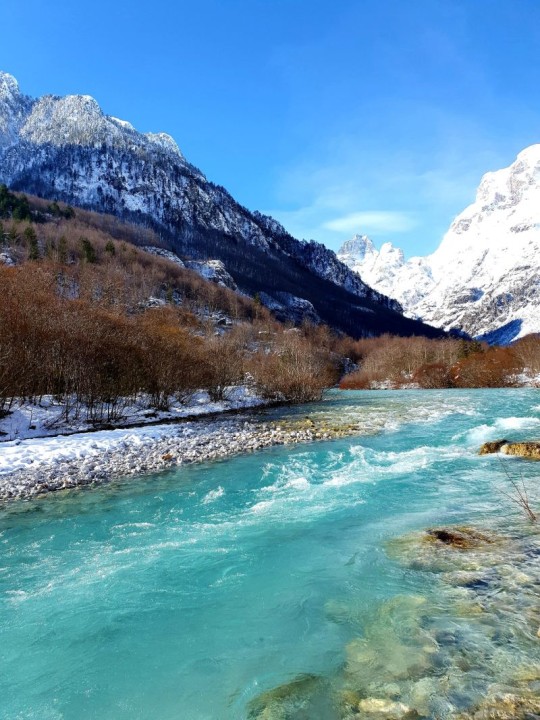
Game-Changing Innovation: Tackling Water Pollution Head-On with a Novel Approach, Turning the Tide: A Cutting-edge Natural Solution Emerges
According to the World Health Organization unsafe drinking water, inadequate availability of water for hygiene, and lack of access to sanitation together contribute to about 88 percent of deaths from diarrheal diseases, which kill 900 children under 5 years old per day according to new UN estimates, or one child every two minutes. UN-Water, the United Nations inter-agency coordination mechanism for all freshwater related issues including sanitation, concluded that the major sources of water pollution are from human settlements and industrial and agricultural activities. Approximately 3.5 million people die each year due to inadequate water supply, sanitation and hygiene.
Clean water and sanitation is one of the UN Sustainable Development Goals. The United Nations is aiming to achieve universal and equitable access to safe and affordable drinking water for all by 2030. This goal is not only to improve human health, but also a solution to reduce the gender inequality in some parts of the world. In Africa, 90 percent of the work of gathering water is done by women and girls, who spend up to 6 hours every day fetching water. However, with the same access to productive resources as men, including water, women could increase yields on their farms by 20 to 30 per cent and lift 150 million people out of hunger.
Water is the lifeblood of human beings, and life on Earth. People depend on freshwater for drinking, cooking, cleaning, sanitation, growing food, fishing, generating energy, navigation, recreation and tourism. Safe, sufficient water and healthy aquatic ecosystems are essential for protecting health, achieving food security and ending poverty. According to WHO in 2022 2.2 billion people have limited access to safe drinking water, and by 2025, half of the world’s population will be living in water-stressed areas.
Sahit Muja the Founder and CEO of Global Mining, Green Minerals, and Albanian Minerals said; ” Water is irreplaceable element central to life, industry, and agriculture emphasizes its multifaceted importance. The high percentage of water in the human body underscores the intimate connection between water quality and human well-being. Clean and safe water is essential for maintaining bodily functions and overall health. Acknowledging water as a valuable and limited resource highlights the need for investments in sustainable water management practices, infrastructure, and technologies. These investments are critical for ensuring reliable access to clean water for communities and industries”.
Mr. Muja added that; The sustainability of human life is intricately linked to the sustainable management of water resources. Equitable access to clean water, protection of water quality, and the implementation of conservation measures are pivotal for building a sustainable future. Indeed, water pollution and scarcity are among the most significant challenges facing the world today. These issues have widespread implications for human health, ecosystems, agriculture, and overall global sustainability.
“Addressing these challenges requires a comprehensive approach that spans international cooperation, innovative technologies, policy initiatives, and community engagement. This collective effort is essential for finding solutions that balance human needs with environmental sustainability. My effort to recognize water as a precious and finite resource resonates strongly with the global imperative to secure a sustainable future for our planet and all its inhabitants. Mt work has been centered on a long-term commitment to environmental and sustainable initiatives. Addressing global challenges related to climate change, environmental degradation, and promoting resilience and equity are pivotal endeavors with far-reaching implications for the well-being of our planet and future generations”. Sahit Muja said.
Mr. Muja said “Studying nature provides valuable insights into sustainable and harmonious environmental solutions. Nature has evolved over millions of years, optimizing processes and systems to achieve balance and efficiency. Here are some key principles observed in nature that inspire environmental solutions: Nature demonstrates the importance of biodiversity in maintaining ecosystem health and resilience. Minerals, forests, and soil act as natural filters, purifying water and air through physical, chemical, and biological processes. Mimicking these natural filtration mechanisms in engineered systems can provide sustainable solutions for water and air purification. Nature harnesses renewable energy sources, such as sunlight and wind, in natural processes. Investing in and promoting renewable energy solutions, inspired by natural processes, is key to reducing reliance on non-renewable resources. By closely observing and learning from nature, researchers and environmentalists can discover sustainable and regenerative solutions that respect the intricate balance of ecosystems. Biomimicry, a practice that draws inspiration from nature to solve human challenges, exemplifies the potential of applying nature’s wisdom to address environmental issues”.
Alps in Europe are renowned for their pristine and clean water. The Alpine region, which spans across several European countries including Albania, Montenegro, Kosovo, Sllovenia, Switzerland, Austria, France, Germany and Italy. This region is characterized by high mountain ranges, deep valleys, and numerous lakes and rivers. Here are some reasons why the Alpine waters are considered clean:
Sahit Muja stated that; Tropoje, Albania, is a remarkable and pristine natural wonder. The clean air and water in the region, attributed to the untouched alps, diverse minerals, and the world’s largest magnesium olivine reserves, make it a unique and environmentally significant location. Tropoje’s Alps have remained untouched by mass human habitation, pollution, degradation, and industrialization. This pristine state contributes to the area having some of the cleanest air and water in the world. The Alps in Albania and Mediterranean climate contribute to unique weather patterns and biodiversity. Tropoje, Albania, is noted for having the world’s largest magnesium olivine reserves. Magnesium olivine is highlighted as a solution against climate change and ocean acidification, capable of capturing carbon dioxide and converting it into nutrition . The natural process of water filtration through olivine rock is an essential component of the hydrological cycle and plays a crucial role in maintaining water quality.
Sahit Muja said; “Albanian Minerals, Green Minerals with international partners in U.S., Japan. China has don intensive study by a group of scientists on the nature in Tropoje, Albania. This research and olivine base product development is a valuable and commendable effort on finding the best solution for water cleaning processes and methods to effectively remove contaminants and ensure water quality. It’s encouraging to hear that incredible progress has been made in cleaning water naturally through the use of green magnesium olivine and utilizing data, technology, and artificial intelligence (AI). Integrating these tools can enhance the efficiency, precision, and sustainability of water treatment processes. By leveraging technology and AI in water cleaning processes, researchers and practitioners can gain valuable insights, make informed decisions, and implement more effective and sustainable water management strategies. These advancements contribute to a holistic approach to water treatment, ensuring the availability of clean and safe water for communities and ecosystems”.
Sahit Muja has made significant strides in sustainable resource management, indicating a commitment to balancing resource use with environmental preservation. His focus on environmentally friendly technologies and investments in the green energy and battery industry align with the growing emphasis on sustainable practices in the business world. Sahit Muja is recognized globally for his commitment to environmental, social, and governance (ESG) standards. This commitment reflects a holistic approach to business that considers its impact on the environment, society, and governance.
Mr. Muja has contributed to numerous innovations aimed at addressing challenges associated with climate change. This indicates a proactive stance in developing solutions that contribute to mitigating the impact of climate change. His dedication to innovation and technology is highlighted, showcasing a forward-looking approach to addressing challenges in the mining industry and beyond.
Sahit Muja’s involvement in addressing global challenges, along with his dedication to innovation and sustainability, positions him as a notable figure in the business world.Sahit Muja’s multifaceted approach, combining business success with a commitment to environmental and social responsibility, underscores his impact on both industry and broader global challenges.





























